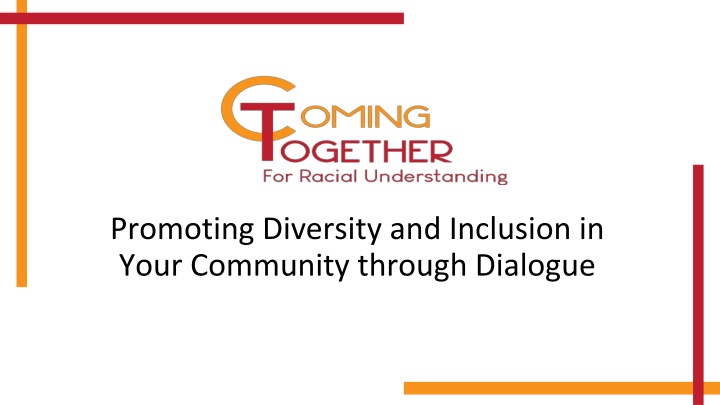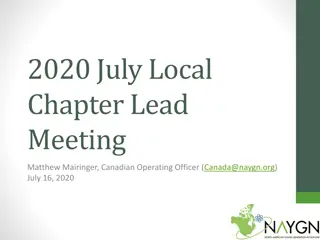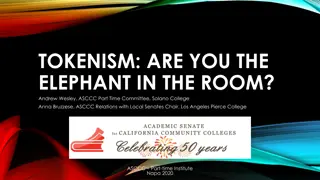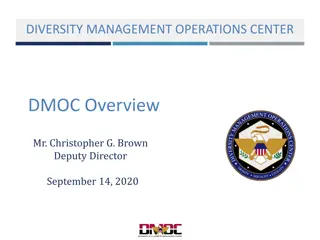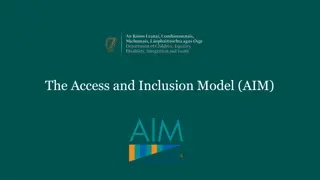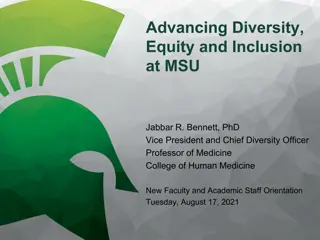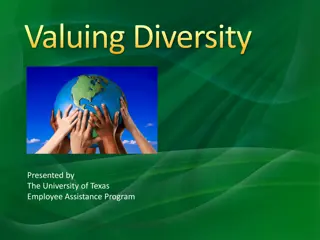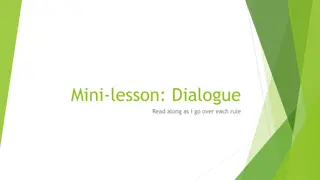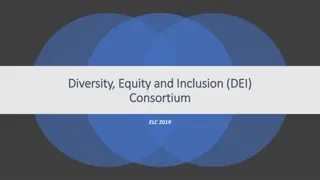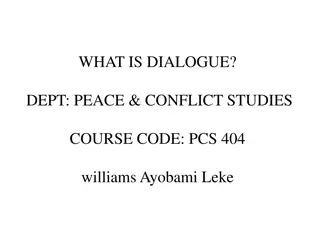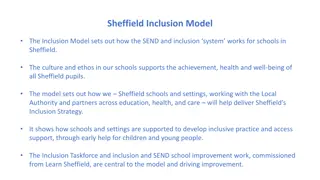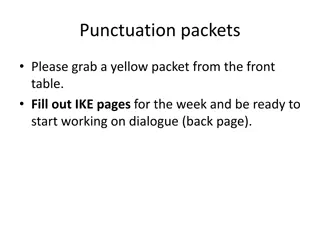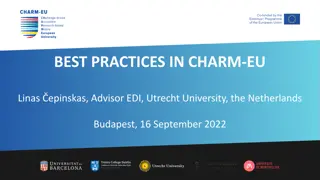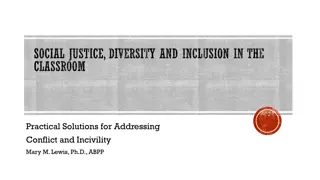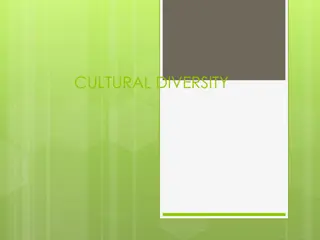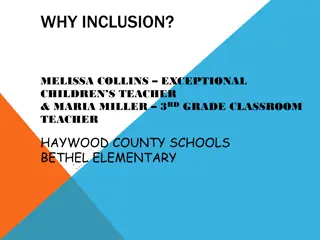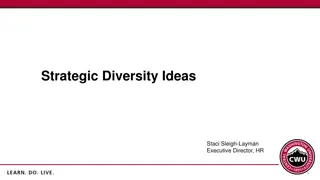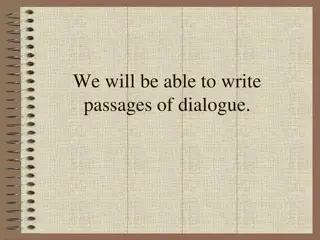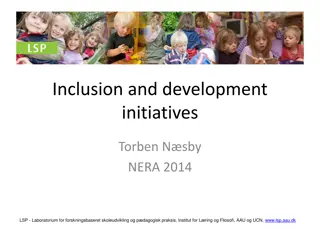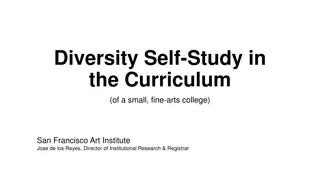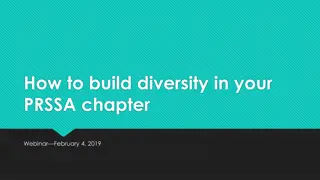Fostering Diversity and Inclusion Through Meaningful Dialogue
Explore the power of dialogue in promoting diversity and inclusion within your community. From addressing complex issues to moving from debate to understanding, learn how listening, empathy, and perspective-taking can bridge divides and foster real connections. Discover the transformative impact of being heard and the importance of engaging in open, respectful conversations to create a more inclusive society.
Uploaded on Oct 09, 2024 | 2 Views
Download Presentation

Please find below an Image/Link to download the presentation.
The content on the website is provided AS IS for your information and personal use only. It may not be sold, licensed, or shared on other websites without obtaining consent from the author.If you encounter any issues during the download, it is possible that the publisher has removed the file from their server.
You are allowed to download the files provided on this website for personal or commercial use, subject to the condition that they are used lawfully. All files are the property of their respective owners.
The content on the website is provided AS IS for your information and personal use only. It may not be sold, licensed, or shared on other websites without obtaining consent from the author.
E N D
Presentation Transcript
Promoting Diversity and Inclusion in Your Community through Dialogue
The Power of Meaningful Dialogue
- World in Conversation The Power of Dialogue
Addressing Complex Issues Publicly Acceptable Culturally Financially Inclusive Viable Dialogue s Purpose Scientifically Compatible Environmentally Responsible Technically Feasible
Moving from Debate to Dialogue Understanding Process Conventional Process Multiple and valid perspectives Goal is to understand Curious and open What can I learn? Listen for their story Listen more than you talk Reflect instead of react One right answer Goal is to be right, win or persuade Evaluating and critical What s wrong with this picture? Listen judgmentally, for errors and flaws Plan your rebuttal Flick, 1998
9 Listening to Learn and Understand
10 Two Types of Listening 1. Active Listening Reflect back, What I understand you to say is No moral judgments, just restate 2. Empathetic Listening Understand the depth of what is said More than just listening to the words, what is the message? Put self in place of the speaker, experiencing their emotions
11 Power of Being Heard Power of Hearing People are more likely to act after they ve emotionally connected with someone else s story
12 Perspective Taking and Perspective Giving Perspective Taking - Making an effort to understand another person s perspective and point of view Perspective Giving - Embracing the opportunity to share one s own story with someone else
Principles of Engagement 1. Involve everyone. 2. Embrace diversity, practice equity throughout. 3. Share knowledge, resources, power & decision making. 4. Connect dialogue & deliberation 5. Connect dialogue to social, political, & policy change.
A Dialogue Approach to Community Change
List of CTRU Dialogue Activities by Session List of CTRU Dialogue Activities by Session Session 1 Making Connections Session 4 Viewpoints - Why do inequities continue? Community Fact Sheet Session 5 Creating a Community Report Card Approaches to Change Imagining Our Community s Future Session 6 Brainstorming Action Ideas Listing our Community Strengths (Assets) Setting our Priorities for Action Session 2 Case Studies Understanding Key Words Session 3 Move Forward, Move Back, Sec A & B Opportunities and Challenges Looking at Inequities in Our Country
The Center for Public Life works in partnership with communities to address public problems using research- based, community-centered approaches to building a more equitable and vibrant democratic society.
What We Do Serve as a resource for communities that are struggling to address complex public problems Increase capacity for effective public problem-solving in communities Engage communities in public problem-solving using trained facilitators to guide the community through deliberative dialogue and action planning to address an issue of concern Work with communities to name and frame issues for public deliberation and public problem solving; Assist with the problem-solving process through civic skill-building opportunities for community members, and supporting action teams Partner with community members as co-researchers to map the effects of social forces and public policies and how community members work together to address public problems.
We partner with communities to address complex public problems through: Community facilitator training Consultation on the development of dialogue issue guides Support and technical assistance with all phases of the dialogue-to-action process Organizing Community Dialogues Community Action Community-driven assessment and evaluation Links to secure the resources necessary for deliberation Open spaces for community members to come together Good and fair information around which to structure the dialogues Trained facilitators to guide the process Partnerships for community-driven participatory research to strengthen communities
For questions about CTRU or to learn how we can help bring the dialogue program to your community, please contact: Mike Stout Michael.stout@okstate.edu (814)769-6692
